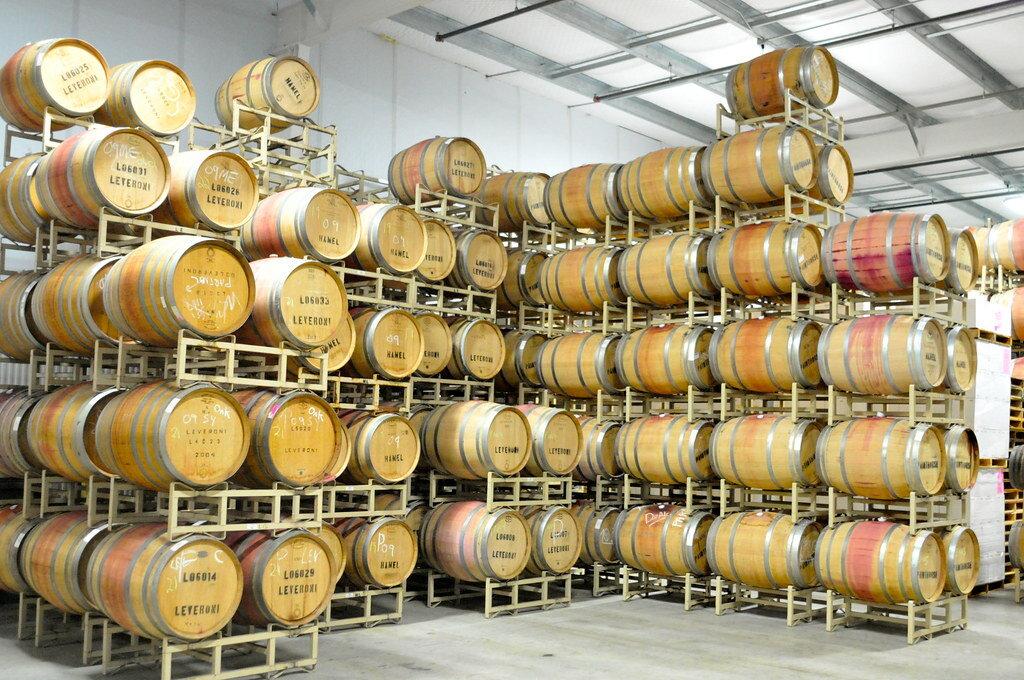This fall semester, Sonoma State offered a new Wine Bachelor’s Degree Transition Program to its students–the first of its kind in this region. The university partnered with Santa Rosa Junior College to offer this joint program.
Students begin the four-year track at SRJC, where they complete their general elective and wine production coursework to earn their associate’s degree and then transfer to complete their upper-division wine business classes.
Rather than obtaining a bachelor’s degree in wine business at SSU, and then transferring to SRJC for two years to learn about the production of wine, students can learn it all within four years using this new track.
“This program will give students who would like a career in the wine industry a well-rounded educational experience to prepare them for their career,” said the Executive Director of the Wine Business Institute at Sonoma State, Ray Johnson. “Santa Rosa Junior College offers a great wine production program, and now students can easily add to that with wine business knowledge.”
This new track could potentially save students interested in the wine industry approximately $11,500. Before this program was created, to obtain the same education they would with this new track, students paid for four years at SSU and two years at SRJC, which is a total of approximately $25,532 for in-state residents. Now, students only have to pay for two years at SRJC, and then two years at Sonoma State, which is a total of approximately $14,048 for in-state residents.
Not only is this new track cost-efficient, but students also learn more about the wine industry as a whole. “If you have experience in both business and production, you make a better contributor to the organization you work for,” Johnson explains.
Distinguished Professor of Wine at Sonoma State, Liz Thach, was the driving force behind the creation of this program. Johnson acknowledged how much work Thach put into the program by saying, “I have to credit the steadfast work of Liz Thach. She was passionate about creating this [program]. She held many meetings with the dean at SRJC, and was very committed to making it happen.”
Dr. Kevin Sea, Instructor and Coordinator of the Wine Studies Program at SRJC, also acknowledged the work Thach put into creating this program. “It’s an idea people have floated to me for years, and it makes so much sense because we teach wine production at SRJC and SSU teaches wine business, so it is the perfect marriage. Liz Thach truly made it happen, though.”
The only possible downside to the program is the reduced freedom students will have when picking classes. Students will not be able to take as many elective classes, because some of their elective credits will go towards wine production classes.
But, by giving up some elective classes that aren’t dedicated wine, students will be able to graduate with more knowledge about their desired field of work. Kevin Sea explained the importance of gaining as much knowledge and experience in the wine business as possible. “A lot of employers want students to know the basics of the wine production process, even if they choose to work in business for the wine industry. This program offers students a perspective into the wine-making process, and no matter what job they obtain in the wine industry, the more they know about the entire process, the better.”





![[Both photos courtesy of sonoma.edu]
Ming-Ting Mike Lee stepped in as the new SSU president following Sakakis resignation in July 2022](https://sonomastatestar.com/wp-content/uploads/2024/04/CC4520AB-22A7-41B2-9F6F-2A2D5F76A28C-1200x1200.jpeg)


























